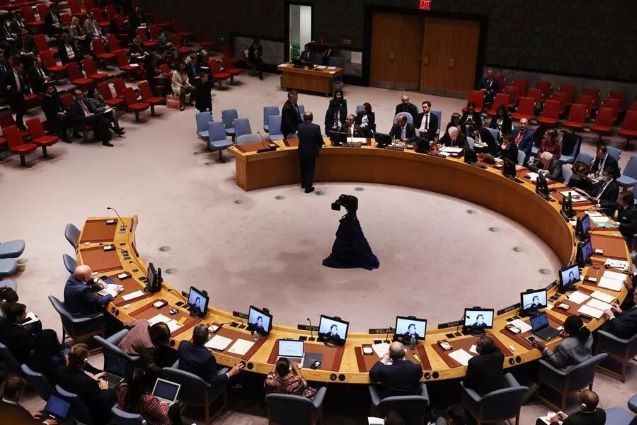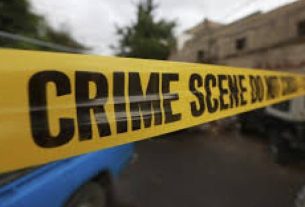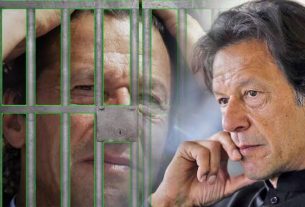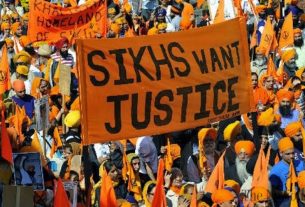U.N. Security Council members on Thursday reaffirmed the need to preserve the historic status quo at Jerusalem’s holy sites in the aftermath of a visit to the al-Aqsa Mosque compound by a hard-line Israeli minister.
“As we have seen numerous times in the past, the situation at Jerusalem’s holy sites is deeply fragile, and any incident or tension there can spill over and cause violence throughout the occupied Palestinian territory, in Israel and elsewhere in the region,” Khaled Khiari, U.N. assistant secretary-general for the Middle East, warned in a briefing to council members.
He urged the parties to refrain from escalating tensions and respect the status quo, which allows Jews and Christians to visit the site at specific times but only Muslims to worship there.
Thursday’s emergency meeting was requested by the Palestinians and Jordan and supported by council members United Arab Emirates, China, France and Malta.
Visit to compound
Israel’s new far-right government was sworn in on December 29, along with Benjamin Netanyahu, who returned as prime minister for an unprecedented sixth term. On Tuesday, the new national security minister, Itamar Ben-Gvir, accompanied by a heavy security detail, visited the compound that houses al-Aqsa Mosque.
His visit marked the first time since 2017 that an Israeli minister had gone to the site known as Haram al-Sharif by Muslims and Temple Mount by Jews.
The far-right politician is one of the more controversial members of the new Israeli Cabinet, having been convicted in 2007 by an Israeli court for inciting anti-Arab racism. He was also previously part of the violent Jewish extremist movement called Kahanism founded by Rabbi Meir Kahane.
Although Ben-Gvir’s brief visit was without incident, it brought immediate condemnation as being “provocative” from several Arab nations, including those that have relations with Israel.
Palestinian envoy Riyad Mansour said Ben-Gvir’s intentions were clear.
“He is pursuing the same extremist agenda he has pursued all his life: ending the historic and legal status quo. That is his objective, regardless of the consequences,” Mansour told the council.
Netanyahu’s office said the prime minister is fully committed to maintaining the status quo.
“We expect the government of Israel to follow through on that commitment,” U.S. Ambassador Robert Wood said at the council meeting.
Israel’s U.N. envoy defended the national security minister’s actions.
“Minister Ben-Gvir’s recent visit to Temple Mount was not an incursion into al-Aqsa or any other fabrication that the Palestinians branded his visit as,” Ambassador Gilad Erdan said, striking a defiant tone. “Minister Ben-Gvir’s visit was in line with the status quo, and whoever claims otherwise is only inflaming the situation. Jews are allowed to visit the Temple Mount.”
Jordan’s King Abdullah is the custodian of both Muslim and Christian holy sites in Jerusalem. His envoy said Ben-Gvir’s unannounced presence was a status quo violation.
“This storming took place without the agreement of the Al Qaf administration, which is the legal agency in charge of the Haram [al-Sharif],” Ambassador Mahmoud Hmoud said, adding that Israel also violated an international convention and two Security Council resolutions — one of which was adopted in 2000 in response to an incursion at the site by then-Israeli opposition leader Ariel Sharon. That incident led to Palestinian protests and riots that grew into the second intifada (uprising), which lasted more than four years and was deadly for Palestinians and Israelis.
A flashpoint
The holy site has been a flashpoint for violence, most recently in 2021, when Israeli police raided the mosque after Palestinian protesters threw stones at them from the site. The violence triggered an 11-day war in the Gaza Strip between Israel and Hamas militants.
Mansour called on the Security Council to take action.
“The record shows that Israeli persistence on this path does not lead to surrender but to uprising,” he said. “Those committed to international law and peace must act now, not lament once the fire spreads beyond control.”
Council members expressed their concern about the escalating tensions and a need to maintain the status quo, to refrain from unilateral actions that could undermine peace prospects, and to return to political negotiations that could lead to a two-state solution.__VOA News





